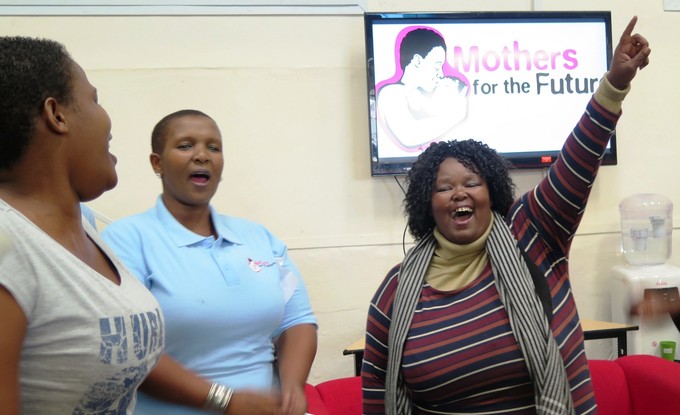Mothers’ Day for sex workers
Mothers for the Future is a programme that supports mothers who are sex workers
Mothers for the Future is an initiative of the Sex Workers Education and Advocacy Taskforce (SWEAT). It provides support groups, outreach and home visits. Mothers discuss difficulties such as domestic violence, child grants, and the challenges that they face when their children are targeted as a result of their mother’s work.
Duduzile Dlamini, the programme coordinator, says that some mothers even have their children taken away from them by social services and that their children, like their mothers, are criminalised.
“We are proud; we are mothers; we are the best mothers, and we fight for decriminalisation [of sex work],” said Dlamini.
“We pay school fees for our children to get more education. We pay bills but are not able to save the money. We can’t open accounts,” said Dlamini.
Opening accounts and getting insurance are difficult as sex work is illegal and sex workers cannot present a pay slip to the bank.
Porcia, who is a member of Mothers for the Future, has two children and said that she sees herself “as a worker like everyone else”. She is a member of the community and goes to church every week. She makes donations to the church from the money that she earns as a sex worker.
Sometimes she is arrested on a Friday night and kept at the police station for the whole weekend. Her children are then at home alone and without any food.
Noluthando, another member of the programme, has a daughter and a son. She said that she was called into her daughter’s school by the principal as her child had been fighting with other children.
“The other children were swearing at her about her mother [being a sex worker]. And the principal asked me, ‘What is the problem? Is this true?’, and I was so embarrassed,” said Noluthando. She began to cry at the memory of the incident.
“I don’t blame anyone because it was my choice to be sex worker … I am proud of myself because my first child passed grade 12,” said Noluthando.
Today’s event also saw the launch of a short movie on Sex Worker Supermoms.
In the video one mother said, “I feel that I am a strong woman and I have got through all the problems. It is a job for me. I get money out of it, I manage to support my child and myself. I buy food, pay bills, pay school fees.”
Another mother said, “I like to make my children my first priority. I like to educate myself and my children and I like to treat people with respect.”
Support independent journalism
Donate using Payfast

Don't miss out on the latest news
We respect your privacy, and promise we won't spam you.
Next: Councillor blamed for East London housing protest
Previous: This simple public health intervention is cheap and saves lives
© 2016 GroundUp. 
This article is licensed under a Creative Commons Attribution-NoDerivatives 4.0 International License.
You may republish this article, so long as you credit the authors and GroundUp, and do not change the text. Please include a link back to the original article.

